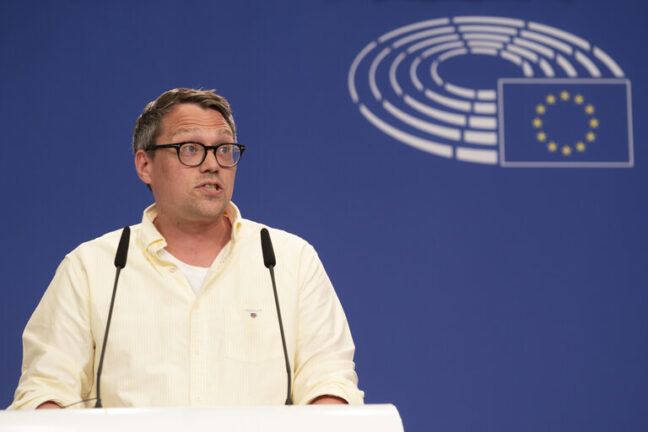The Green Claims Directive sought to prevent greenwashing so that consumers can trust information about the environmental impact of products. The Commission’s attempt to exempt micro-enterprises from the proposed legislation, however, did not find the necessary support. The proposal now seems unlikely to make it to the books.
The final round of talks was due to take place in the European Parliament on Monday, June 23. It never did—the Polish Presidency cancelled it. The reason was Italy’s withdrawal, over the weekend, of the mandate it had given to the Polish presidency to negotiate on its behalf, throwing the future of the legislation into jeopardy.
On Monday, the Commission’s chief spokesperson Paula Pinho repeated the Commission’s threat to withdraw the law. She specified that this threat was triggered by a Council amendment to extend the law’s scope to cover some 30 million micro-enterprises—i.e., roughly 96 per cent of all EU companies.
“This amendment distorts the Commission’s proposal by preventing the achievement of the objectives—meaning the support to the development of green markets while preventing end-to-end burden on the smallest enterprises,” Ms Pinho said.
You might be interested
‘Unprecedented situation’
The situation represents a major clash among the key EU institutions—the Commission, the Council, and the Parliament. It featured as such at Monday’s press conference in the afternoon, after the cancellation of the trialogue.
The victims of today’s situation are Europeans consumers and Europeans companies that are truly sustainable – MEP Tiemo Wölken (S&D/GER), European Parliament’s co-rapporteur
MEP Tiemo Wölken (S&D/GER), the European Parliament’s co-rapporteur on the proposed legislation, spoke about an “unprecedented situation”. “The Parliament was ready to negotiate on the issue (…) The victims of today’s situation are Europeans consumers and Europeans companies that are truly sustainable. The Green Claims Directive would have protected consumers from products with misleading claims being placed on the market,” said the co-rapporteur and directly blamed EU Commission President Ursula von der Leyen for the situation.
Chief aim: protection againts false environmental claims
The draft law aims to protect consumers from misleading environmental marketing practices. It is to require companies bent on using complex environmental marketing claims to submit such claims—along with supporting evidence—to national accredited verifiers for assessment and approval in advance. The draft law also aims to regulate the use of environmental labelling schemes in Europe.
“Ensuring that environmental labels and claims are credible and trustworthy will allow consumers to make better-informed purchasing decisions. It will also boost the competitiveness of businesses striving to increase the environmental sustainability of their products and activities,” the proposed Green Claims Directive stipulates.











